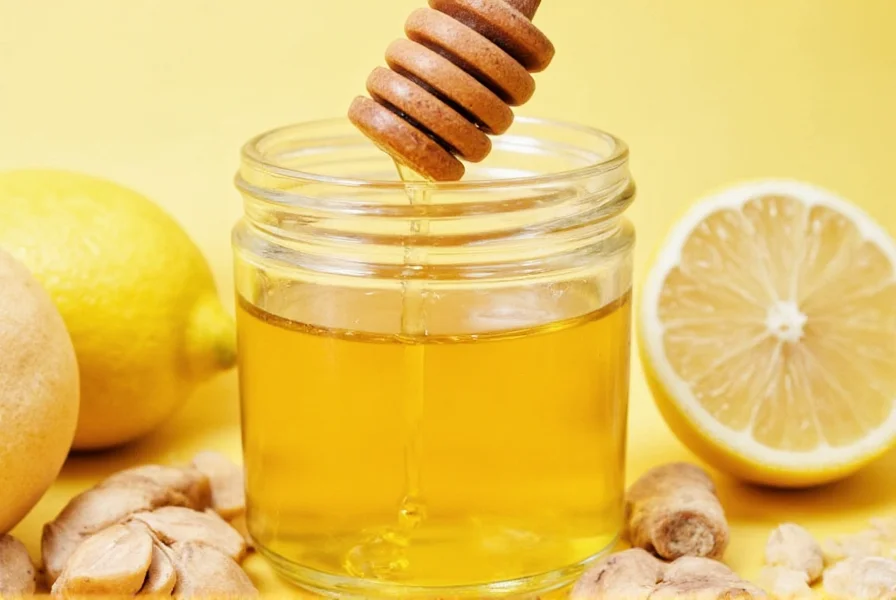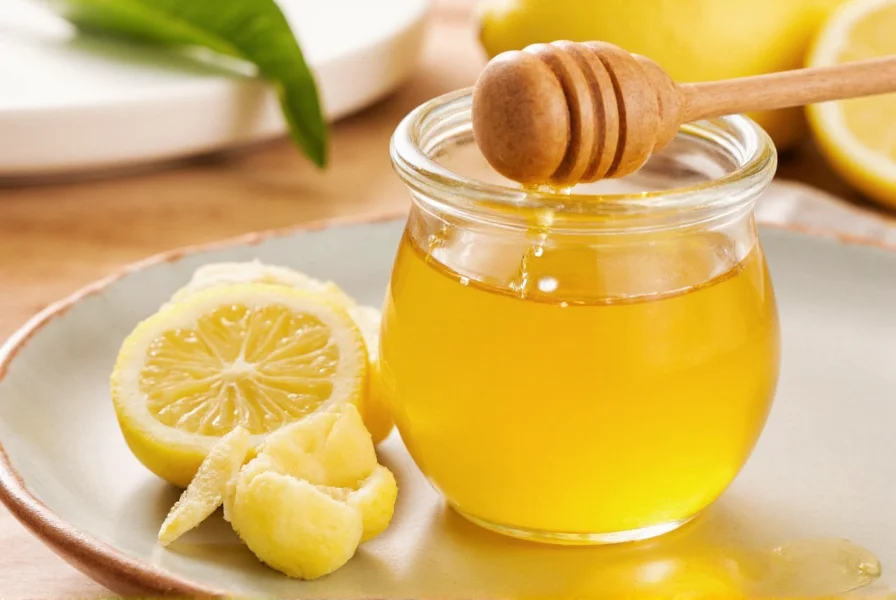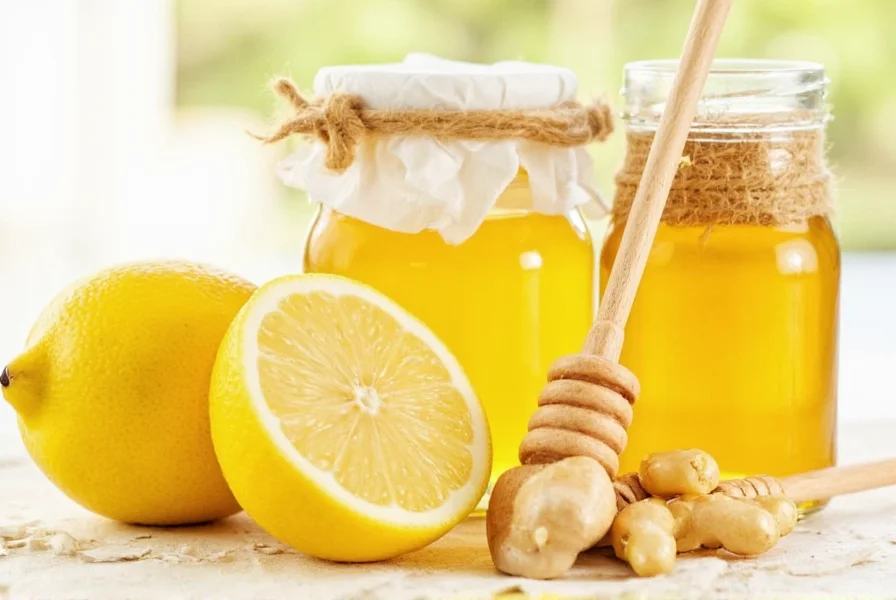When combined, lemon, ginger, and honey form a powerful synergy of nutrients and bioactive compounds that has been valued across cultures for centuries. This simple mixture delivers vitamin C from lemon, gingerol from ginger, and various antioxidants from raw honey, creating a beverage that supports overall wellness through multiple pathways. Understanding the specific contributions of each component helps explain why this combination remains popular for maintaining health during seasonal changes and supporting daily vitality.
Nutritional Powerhouse: Breaking Down the Components
Lemon contributes significant vitamin C and flavonoids, which function as antioxidants protecting cells from damage. One medium lemon provides approximately 30-40mg of vitamin C—nearly half the recommended daily intake. Ginger contains gingerol, the compound responsible for its distinctive flavor and potential anti-inflammatory effects. Raw honey brings its own set of benefits including enzymatic activity and trace amounts of pollen, propolis, and other plant compounds depending on its floral source.
| Ingredient | Key Compounds | Primary Benefits |
|---|---|---|
| Lemon | Vitamin C, flavonoids, citric acid | Antioxidant support, immune function, digestion aid |
| Ginger | Gingerol, shogaols, paradols | Nausea relief, anti-inflammatory properties, digestive support |
| Honey (raw) | Polyphenols, enzymes, trace minerals | Soothing properties, antimicrobial activity, energy source |
Traditional Uses Across Cultures
Cultures worldwide have incorporated lemon with ginger and honey into wellness practices. In Ayurvedic medicine, this combination addresses imbalances in the body's doshas, particularly for respiratory and digestive concerns. Traditional Chinese Medicine utilizes ginger and honey for their warming properties to support digestion and immune function during colder months. European folk medicine commonly prescribed honey and lemon for sore throats, with ginger added for its digestive benefits.
These traditional applications focus on symptom relief rather than disease treatment, emphasizing the mixture's role in supporting the body's natural processes. The lemon ginger honey benefits for immunity stem from historical usage during cold and flu seasons, though modern science examines these applications with more rigorous methodology.
Scientific Perspective on Lemon Ginger Honey Benefits
Research supports many individual benefits of these ingredients, though studies specifically examining the combined mixture remain limited. A 2013 review in Nutrition Journal highlighted ginger's potential for reducing nausea and supporting digestive health. The antimicrobial properties of raw honey have been documented in multiple studies, including research published in the European Journal of Clinical Microbiology & Infectious Diseases.
Vitamin C from lemon contributes to immune cell function, though high doses don't necessarily prevent colds as commonly believed. A comprehensive analysis in Cochrane Database of Systematic Reviews found regular vitamin C supplementation might slightly reduce cold duration but doesn't prevent illness in the general population.
When exploring lemon ginger honey for sore throat relief, the soothing effect likely comes from honey's viscosity coating the throat rather than any specific chemical interaction between all three ingredients. The warmth of the beverage also provides comfort, making how to make lemon ginger honey tea a valuable skill for seasonal wellness.
Practical Applications and Preparation
Creating an effective lemon ginger honey drink requires attention to preparation methods that preserve beneficial compounds. Heat destroys some of honey's enzymatic activity, so adding honey after cooling the tea to below 140°F (60°C) maintains its properties. Freshly grated ginger provides more gingerol than powdered forms, and using organic lemon zest increases flavonoid content.
For those interested in lemon ginger honey weight loss claims, it's important to understand this mixture supports hydration and may replace less healthy beverages, but no evidence suggests it directly causes weight loss. The lemon ginger honey drink before bed tradition likely works through hydration and relaxation rather than metabolic changes.

Safety Considerations and Potential Side Effects
While generally safe, lemon with ginger and honey has important considerations. Honey shouldn't be given to children under one year due to botulism risk. Those with gastroesophageal reflux disease (GERD) might experience worsened symptoms from lemon's acidity. Ginger may interact with blood-thinning medications, so individuals taking anticoagulants should consult healthcare providers before consuming large amounts.
Understanding lemon ginger honey side effects helps prevent adverse reactions. Some people experience heartburn from the citric acid in lemon, while others might have mild digestive upset from ginger. Using raw, unpasteurized honey carries minimal risk for healthy adults but requires caution for immunocompromised individuals.
Creating Your Own Lemon Ginger Honey Remedy
For a basic preparation of lemon ginger honey for cold symptoms, combine one cup of hot (not boiling) water with one tablespoon freshly grated ginger, the juice of half a lemon, and one teaspoon of raw honey. Let the ginger steep for 5-10 minutes before adding honey. This lemon ginger honey recipe for cold provides a soothing beverage that supports hydration during illness.

For longer-term use, create a ginger-honey syrup by simmering equal parts grated ginger and honey for 20 minutes, then straining. Add lemon juice when using. This preserves the benefits while making daily preparation more convenient. Remember that consistent, moderate consumption works better than occasional large doses when using lemon ginger honey for digestion support.
Realistic Expectations for Wellness Support
This natural combination works best as part of a comprehensive wellness approach rather than a standalone solution. The lemon ginger honey benefits for immunity function within the context of adequate sleep, balanced nutrition, and stress management. While it may provide symptomatic relief for minor discomforts, it shouldn't replace medical treatment for serious conditions.
Approaching this traditional remedy with realistic expectations ensures you gain maximum benefit without disappointment. The soothing warmth, pleasant flavor, and nutritional components make it a valuable addition to daily wellness routines when used appropriately.











 浙公网安备
33010002000092号
浙公网安备
33010002000092号 浙B2-20120091-4
浙B2-20120091-4